Global health has never been more important. Become a stand-out in your health career preparations as you check off educational requirements at international locations. Develop perspectives you wouldn’t get at home when you work with healthcare teams, environmental researchers, or rural health clinics. Make an impact on the well-being of the world with study abroad.
Here are ways study abroad catapults your health career.
1. Understand health in new contexts
Perceptions of health concerns, including mental health, are strongly influenced by cultural context. Learning about the myths, expectations, and challenges of illness in new contexts prepares you to address potential resistance to treatment. Creating a connection with people and their culture will help you build trust in a healthcare setting—no matter where you choose to practice in the future.
2. Learn to solve real-world problems in a team
Gaining experience is an important factor for your medical school applications that you can do abroad. In the Dominican Republic, for example, you’ll spend a week in rotations at a rural health clinic and in an urban neighborhood. The study abroad experience is similar to what clinicians and scientists encounter in their health careers. You’ll work with medical staff to treat patients and promote health in local communities.
My program taught me that to keep people healthy there has to be a lot of education for communities, especially those that have been marginalized. I want to pursue a career in medicine and incorporate the knowledge I gained in the Dominican Republic to work in communities that need it most. I grew up in a low-income community populated predominantly by people of color. I want to work in a community just like that and be able to care for and empower people like me and my family.
Brenda Chica, UCSD
3. Design solutions to environmental challenges
The interaction between human health and environmental risks is an important part of the overall public health picture for any community. Understanding environmental conditions and potential health hazards enhances your academic knowledge. If this sounds like your specialty, you can design science-based policies to address environmental health challenges in the Pacific Islands.
4. Do research before medical school
Academic research may not be required to enter medical school, but it is valued. Studying abroad is a great way to get medical lab research experience as an undergrad. There are many summer and semester programs with built-in faculty and graduate student support—including attaining those required letters of recommendation.
5. Get field experience in diverse communities
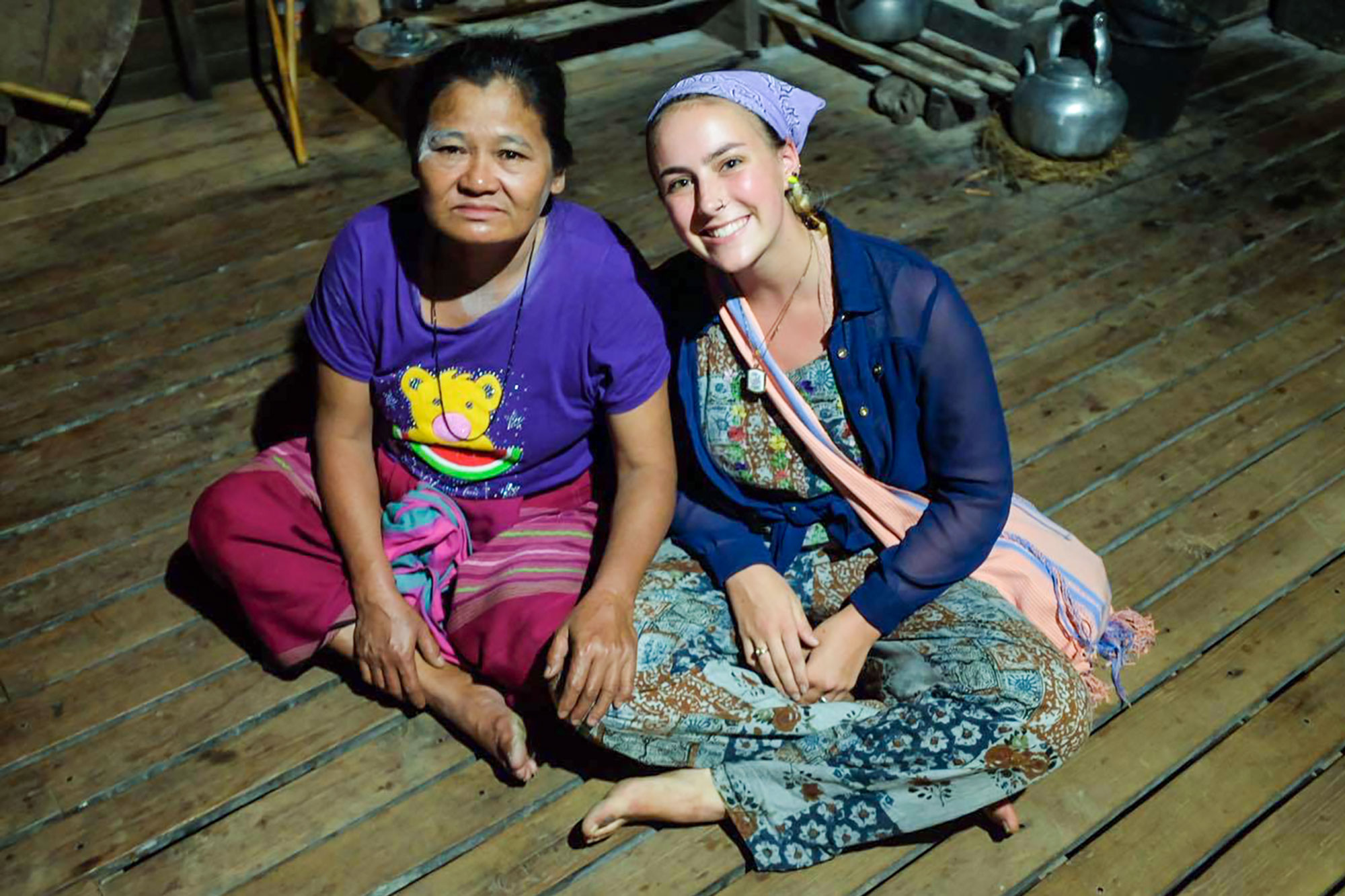
Communities contain people from varying cultural traditions and belief systems. You can have access to field service opportunities in one of these culturally diverse communities during your study abroad experience. In these settings, you can learn how to consider a person’s culture and beliefs in your practice. For example, at the Thai-Burma border, you can shadow medical providers delivering care.
In Mae Sot, I learned about the healthcare implications migrants and refugees face in a foreign country and how the situation in Thailand mirrors our own. I discovered I want to pursue a graduate degree in medicine with a focus on public health. I want to participate in creating accessible healthcare for all—not only for my own country, but internationally as well.
Kylie Pham, UCSD
6. Live in the communities you serve
Empathy and compassion are essential to work with people. Immersing in the communities you serve gives you the chance to observe and understand the people. In so doing, you can adjust how you speak with patients and their families about treatment.
By the fourth day of our homestay, waking up to loud rain and the noises of children felt almost routine. I came to enjoy how involved families were in each other’s lives. They call to one another from their balconies and share everything. As wonderful as my life at home is, it can get lonely and isolating at times. I think that I enjoyed the homestay because it was so different from my daily life in America.
Megan Oza, UCSB
7. Communicate with patients who speak another language
The ability to communicate with people in their language is vital for effective patient care. Using your language skills, you can get a fuller picture of a patient’s condition and make stronger decisions on treatment. Speaking in a patient’s first language can help instill confidence in your skills and what you prescribe. During study abroad, you can extend your preparation for a health career by immersing yourself in a new language and practicing with patients.
See all public and global health programs and select the language in which you want to be immersed.
8. Get your summer internship requirements out of the way
Many health degree plans require a summer internship working in a healthcare setting. Why not get those requirements out of the way while exploring a new country? There are many summer programs for public health and pre-med majors in locations around the world. Taking a summer abroad program will enhance your graduate school applications and let you gain cultural diversity experience at the same time.
My favorite part was visiting rural communities and volunteering in schools. We worked at a pop-up health clinic set up by the West African Aids Foundation. I helped check in patients for eye exams, shadowed counselors, and assisted with HIV/AIDS and tuberculosis testing. Many of the things we study in public health at UCI is theory-based, so it was really exciting to put those theories to the test in the real world.
Patricia Tjan, UCI
Study abroad will go a long way to develop empathy, understand different cultures, and navigate the world outside your comfort zone—all necessary ingredients for a stellar health career.
See how studying abroad can help you continue your practical health training by preparing you for the Peace Corps.
Read about UCEAP’s Peace Corps Prep program

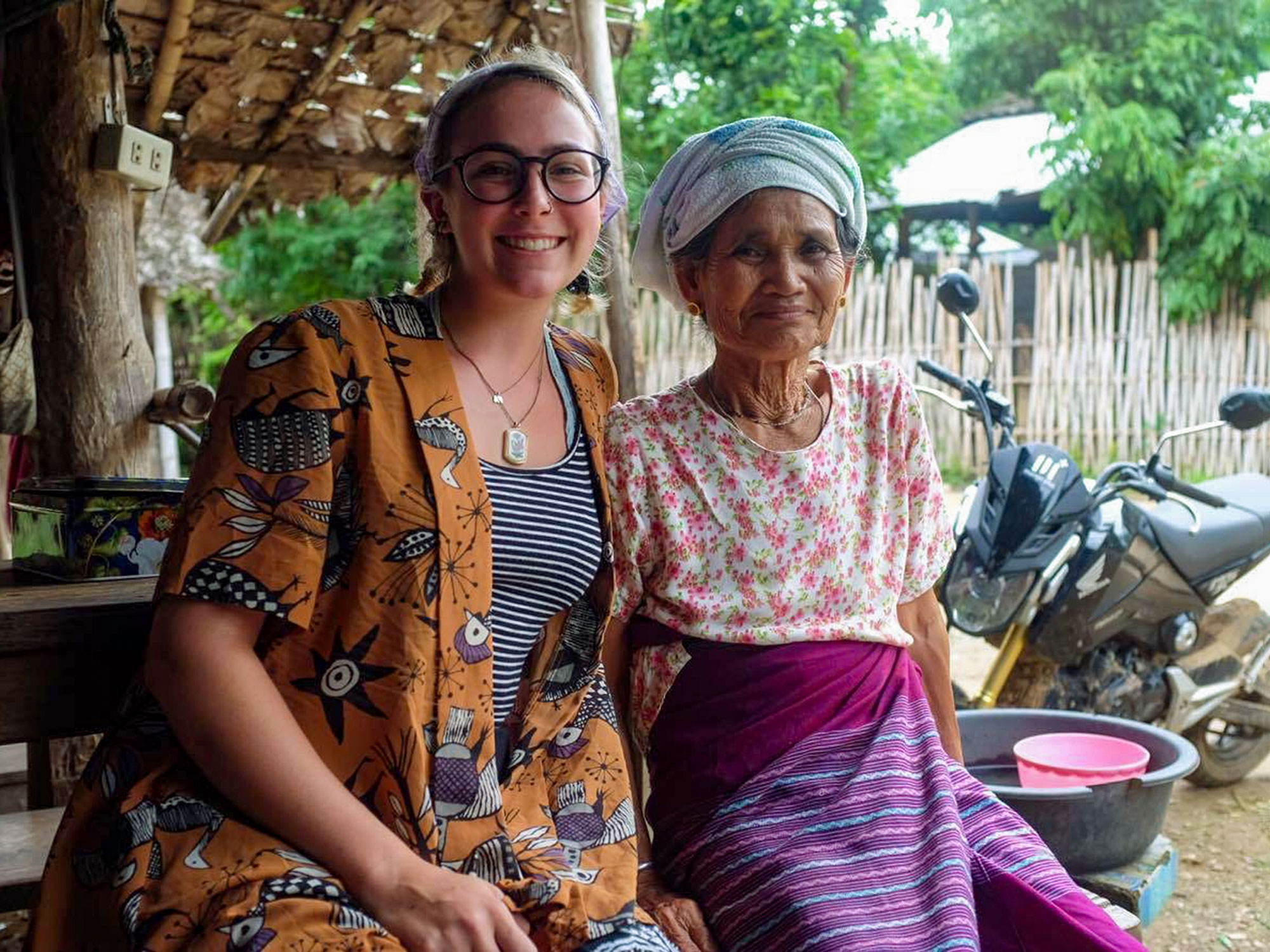
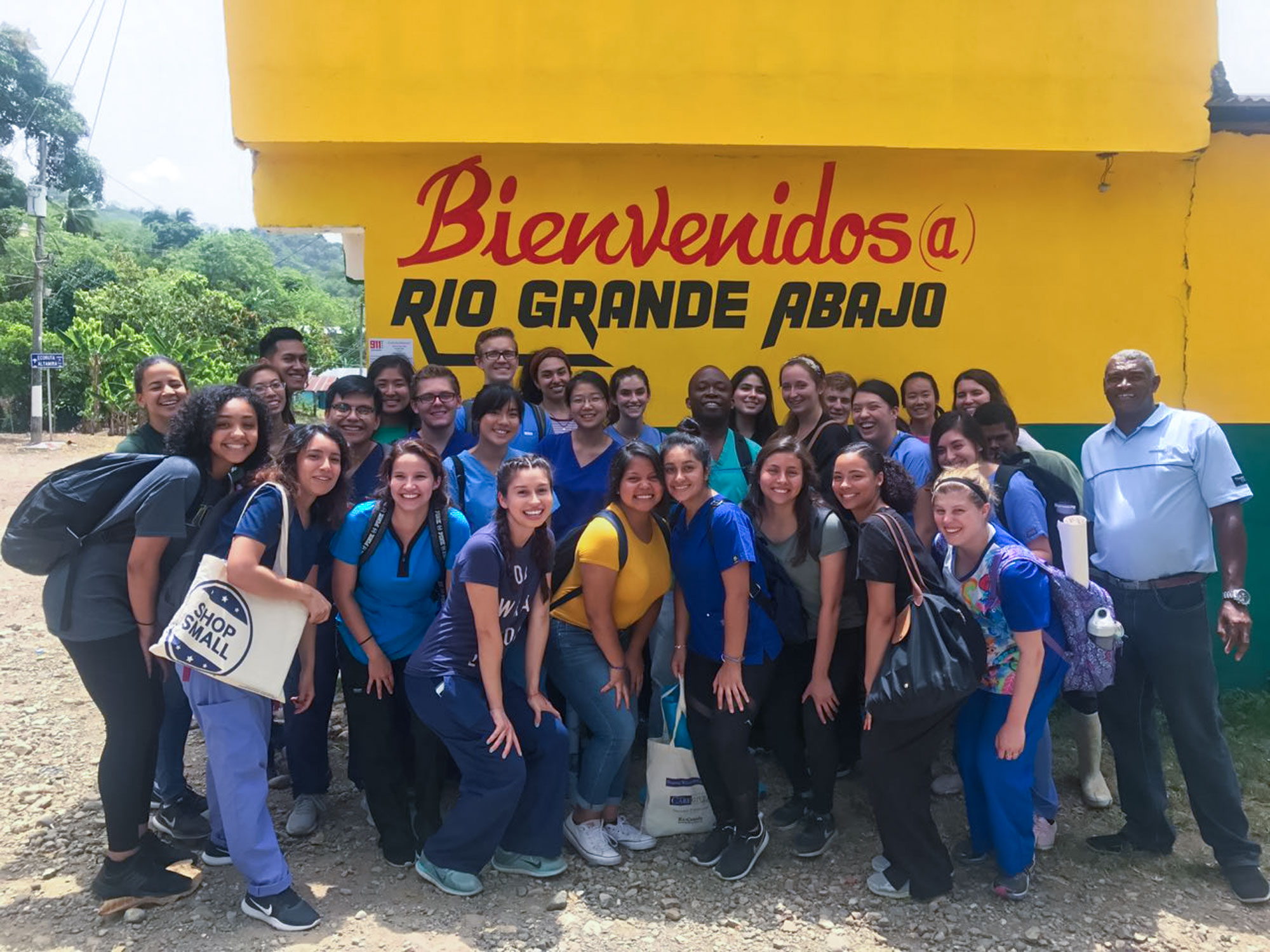
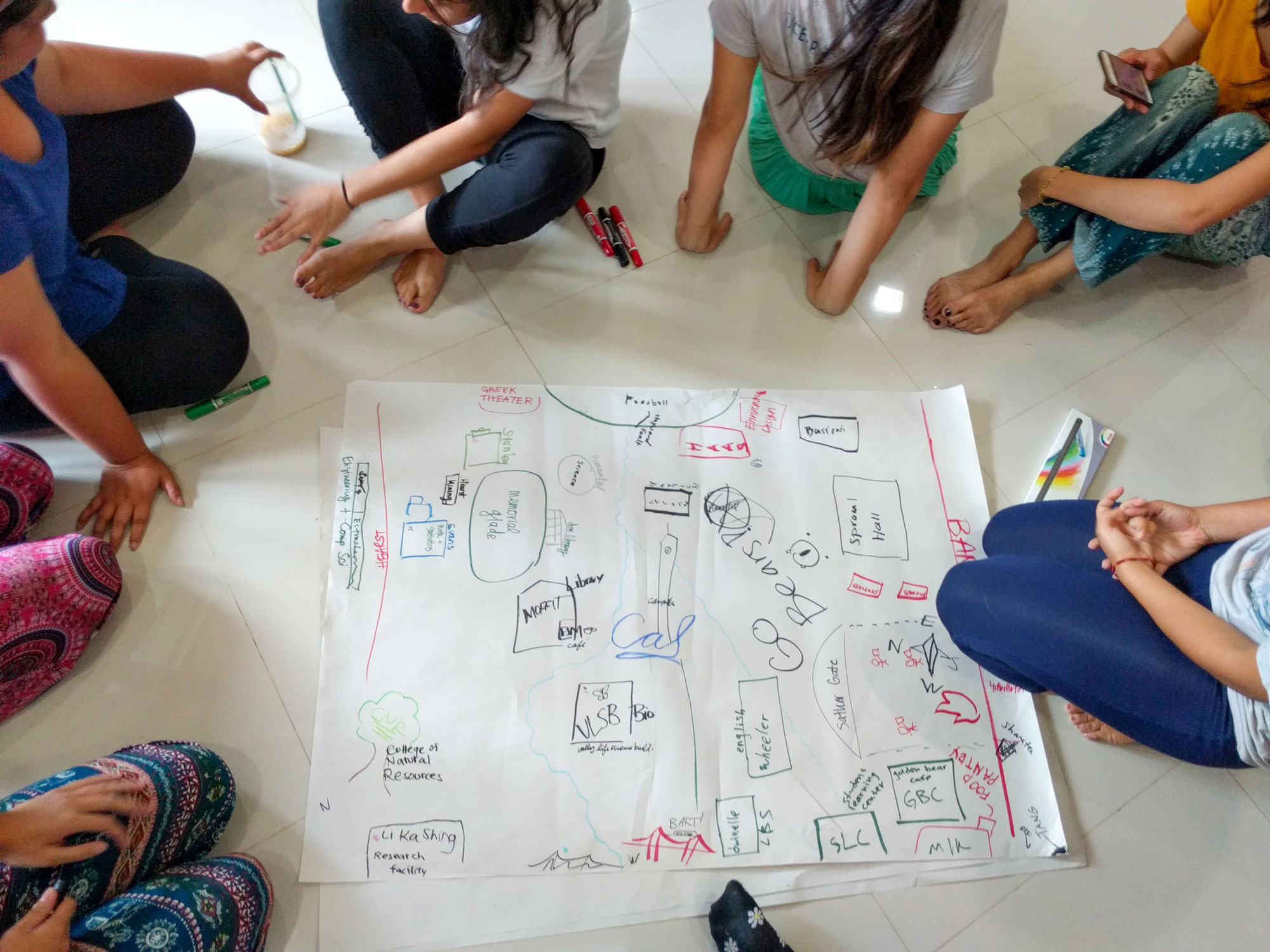
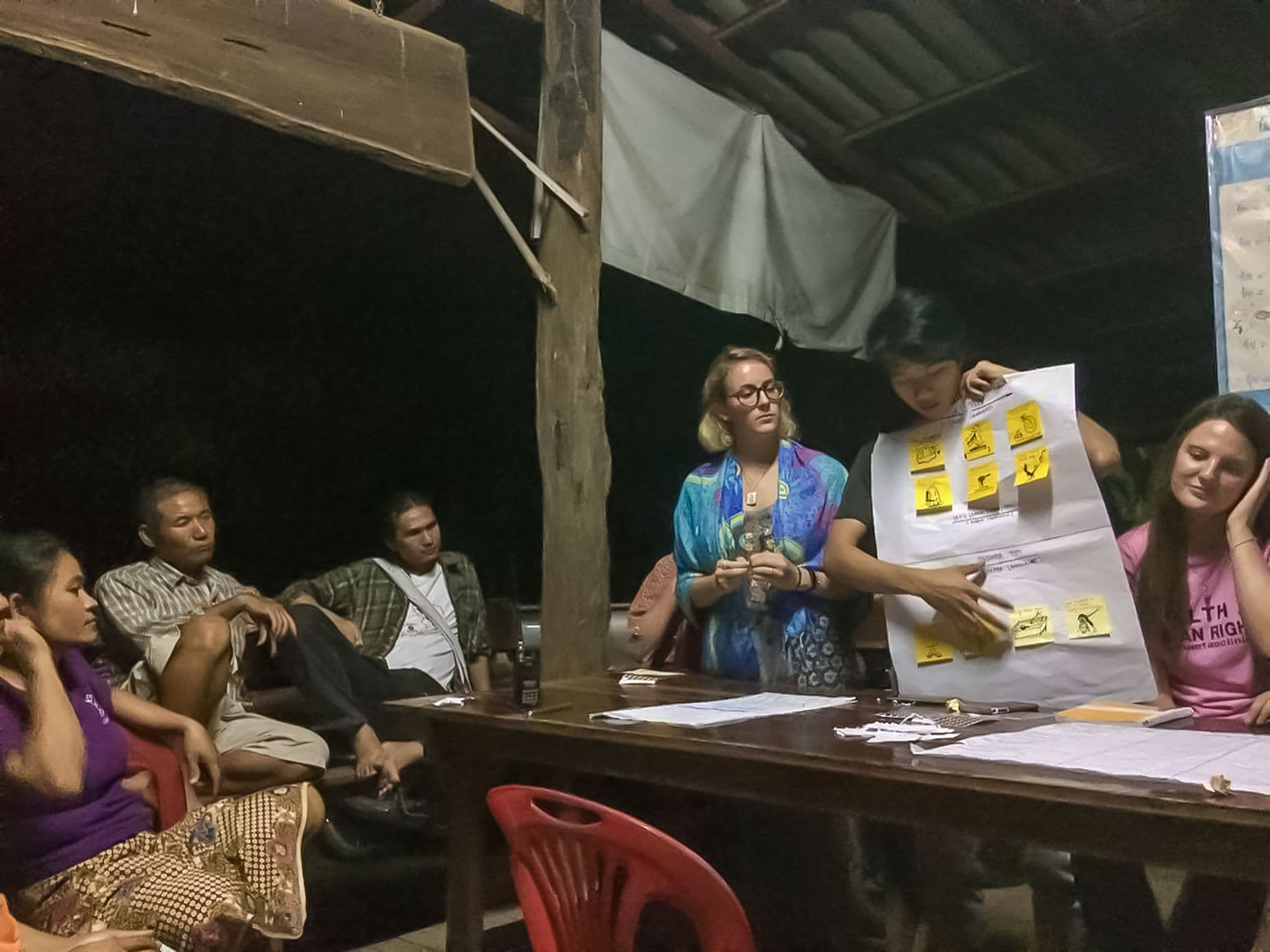
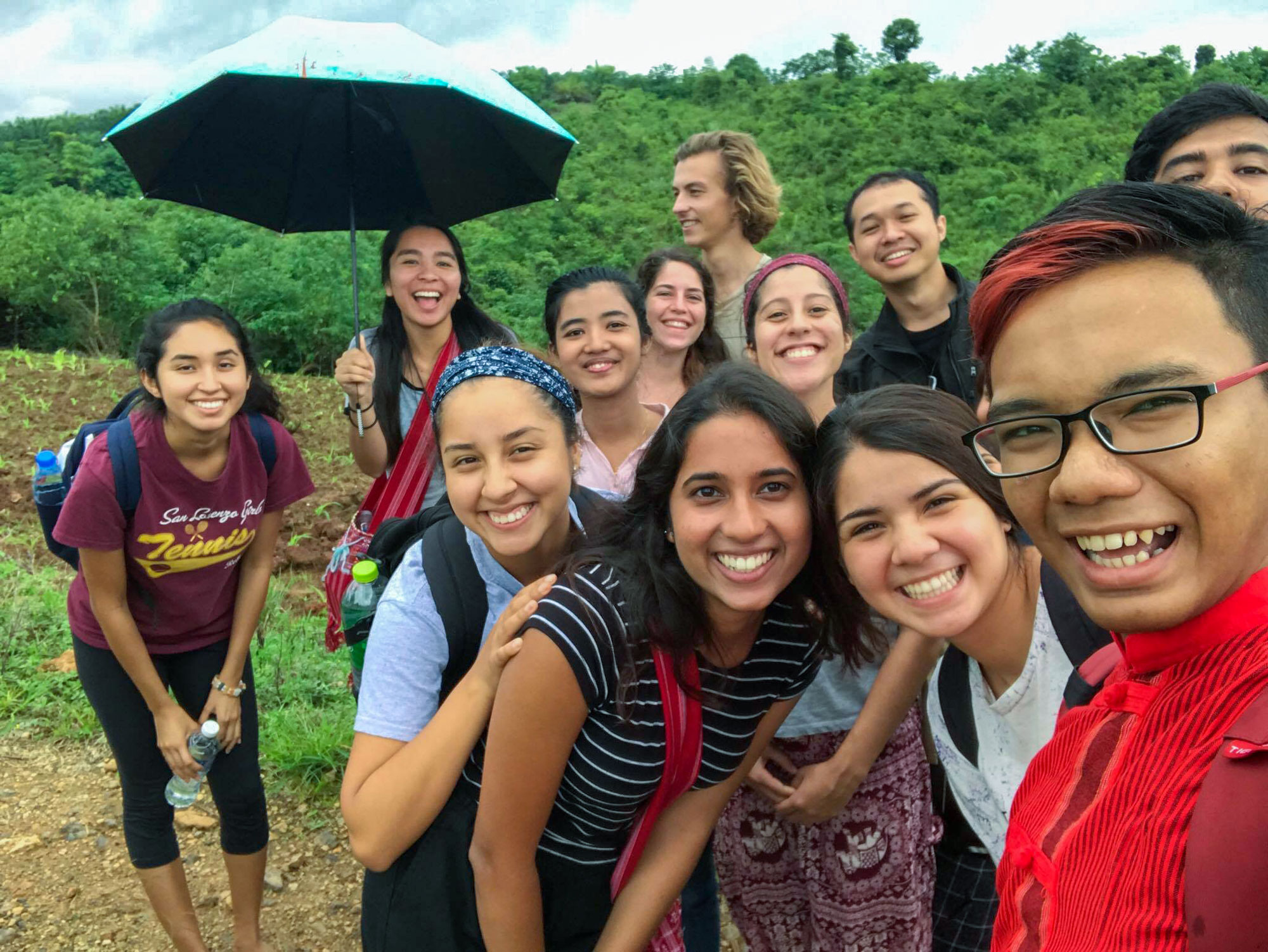
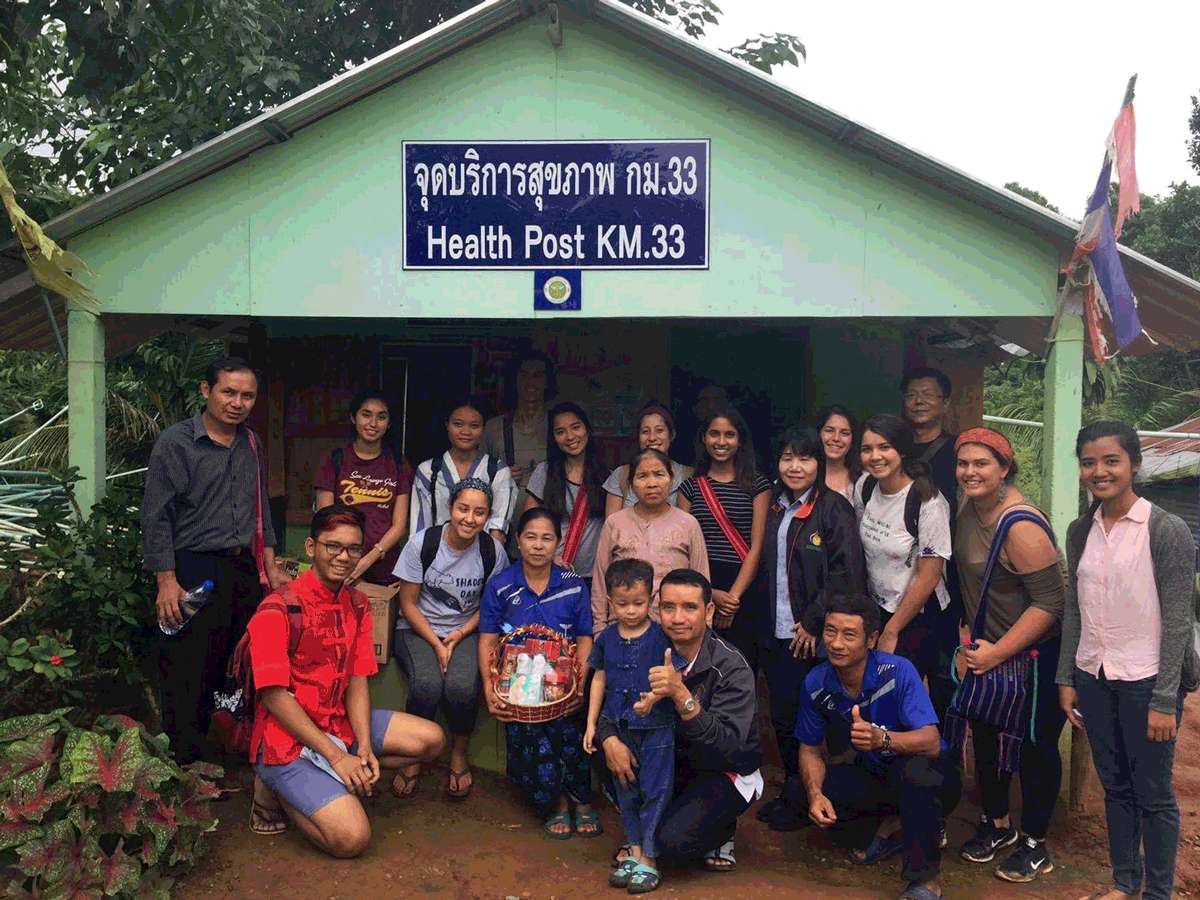

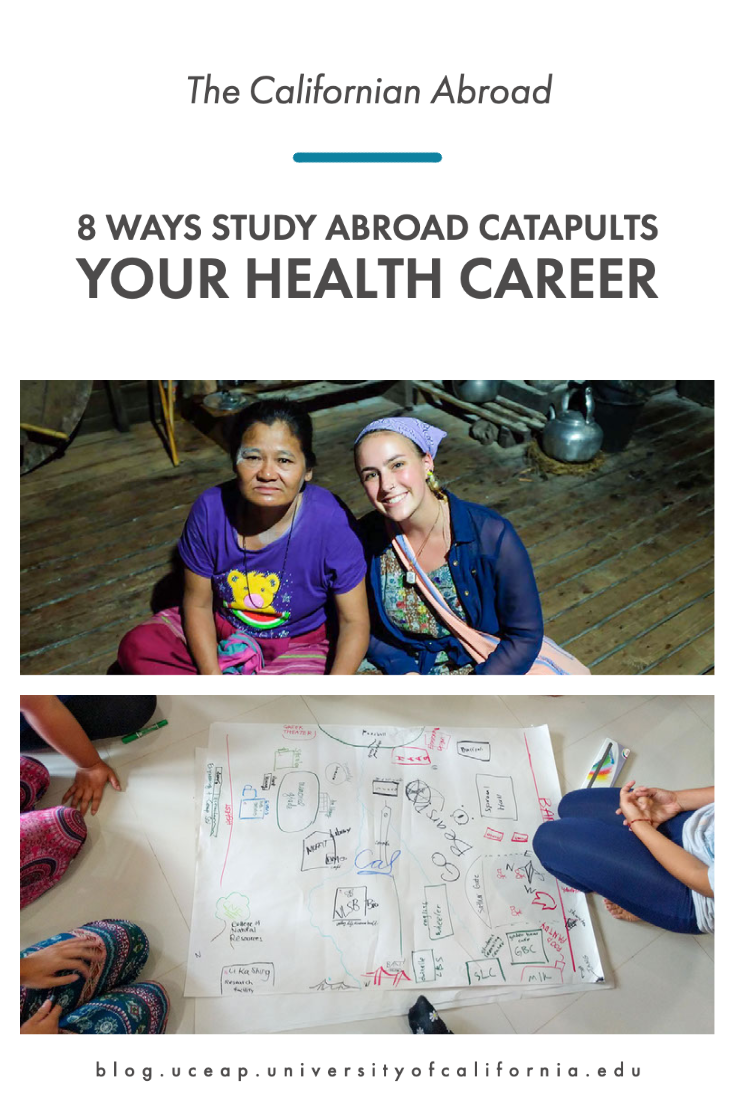
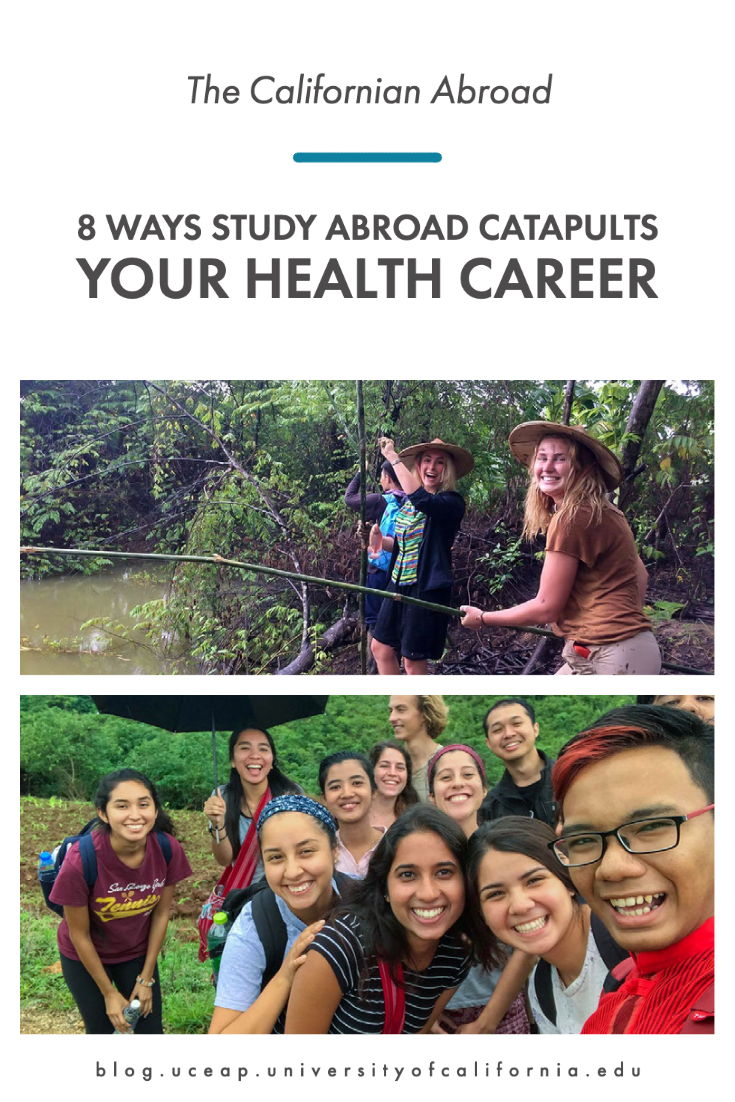
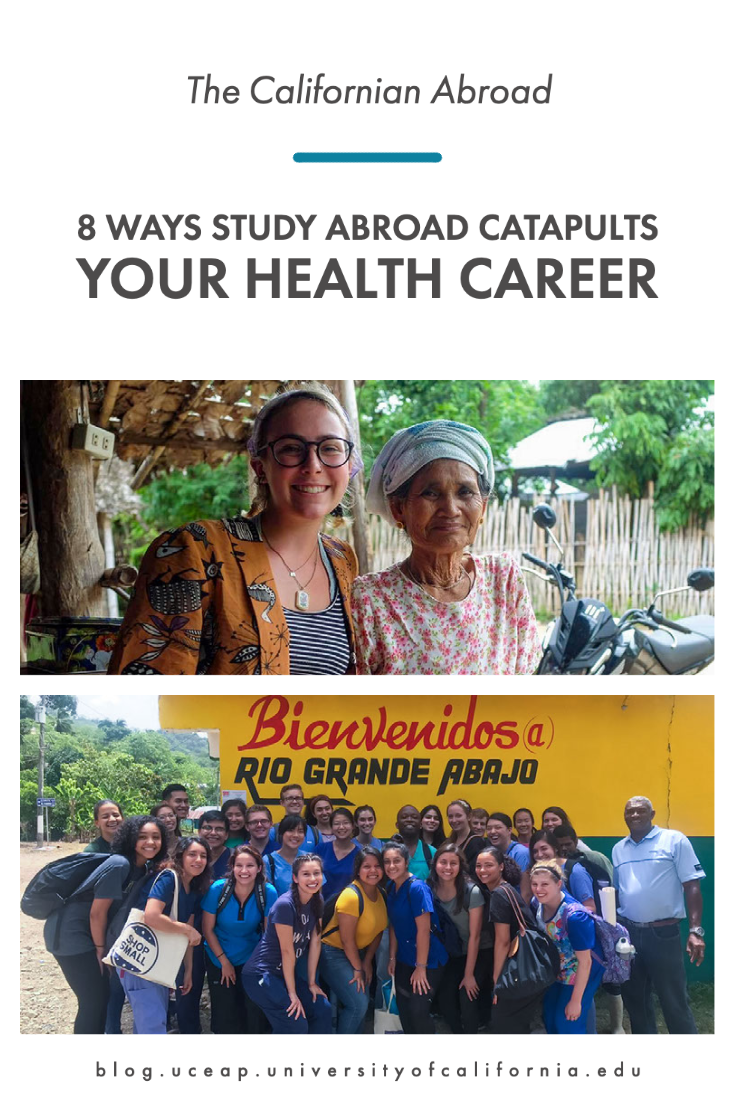
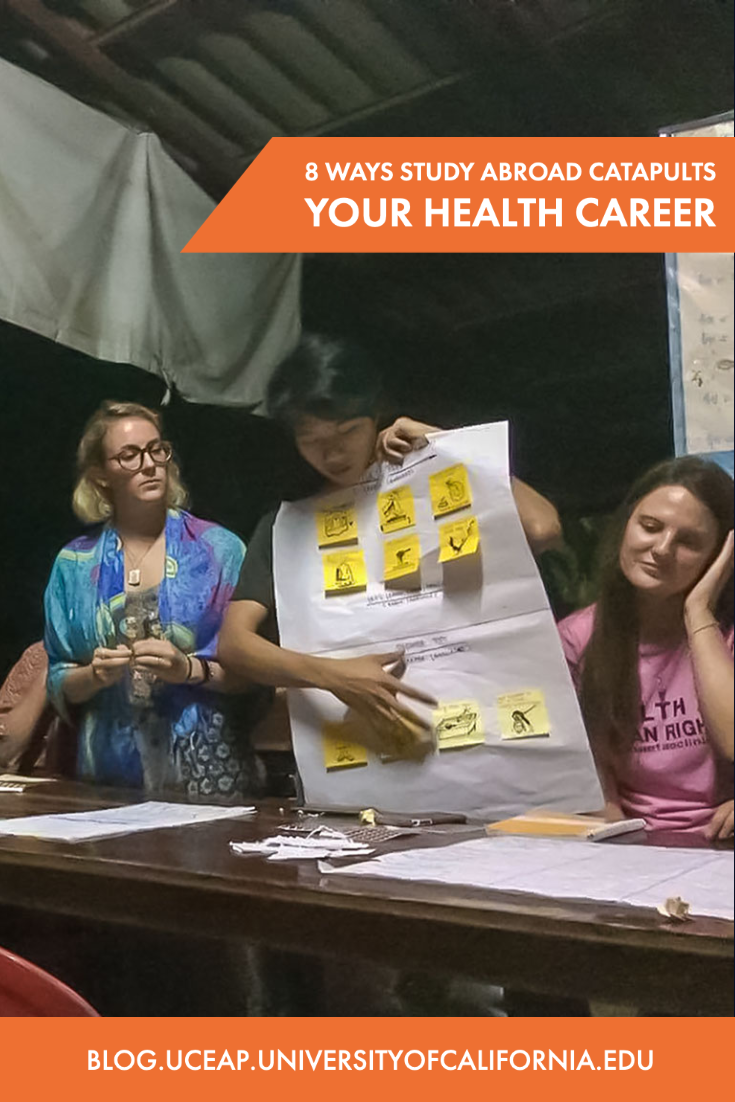
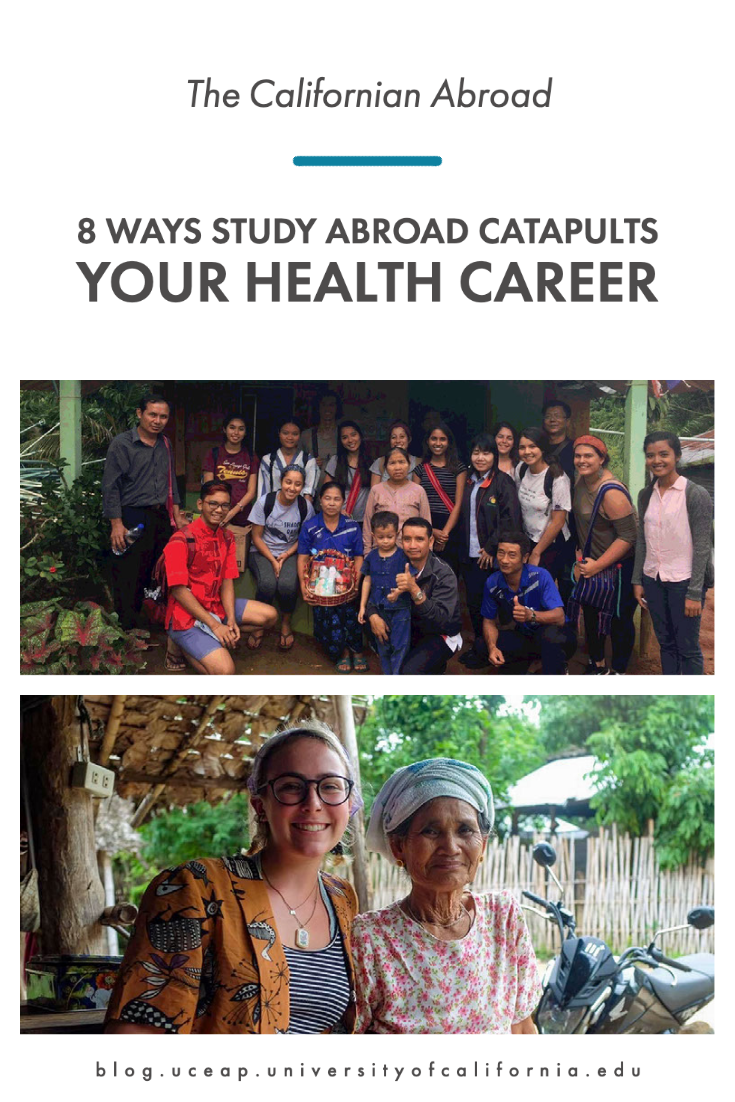
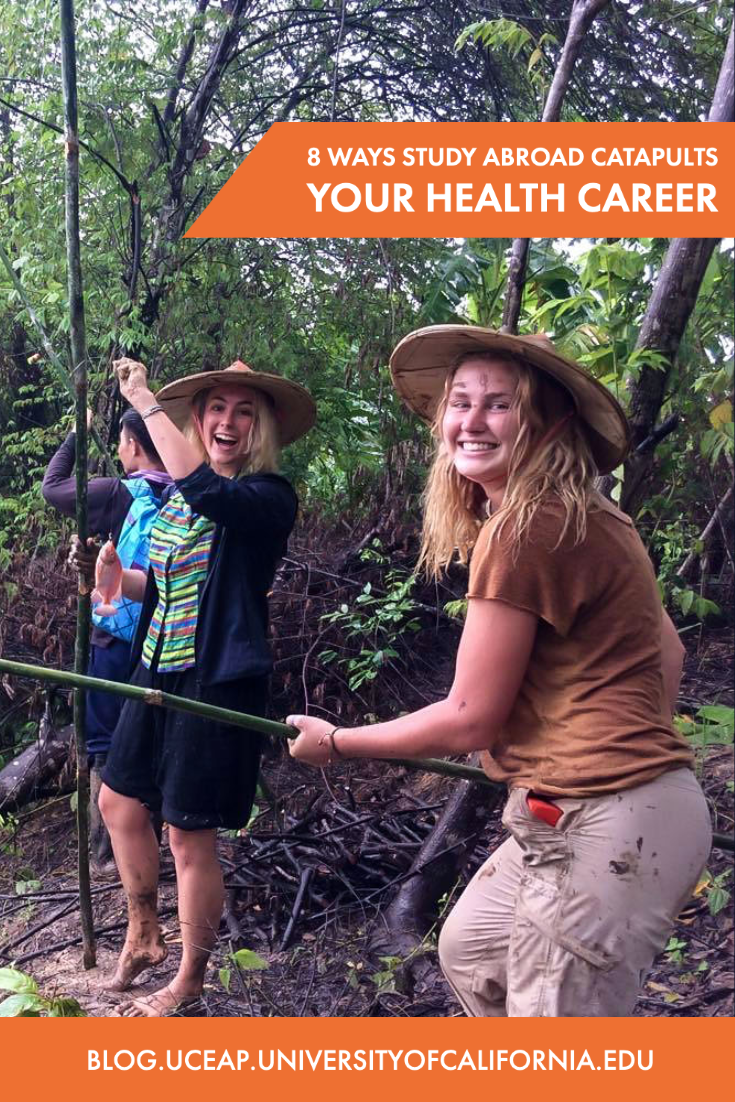




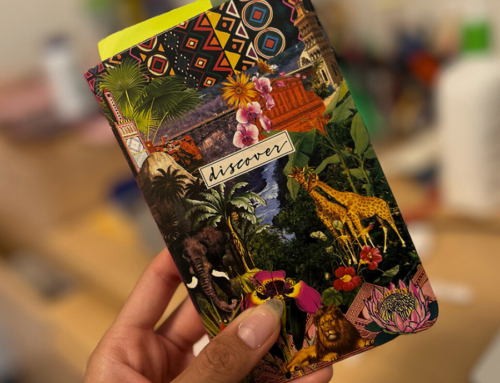

Leave A Comment